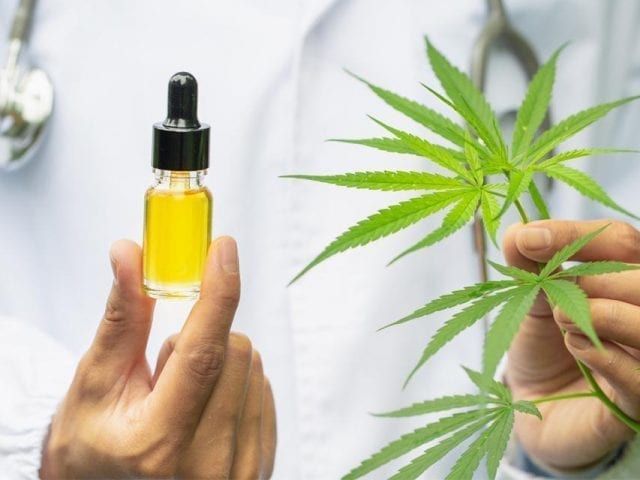CBD stands for the active ingredient cannabidiol, which comes from the hemp plant. Manufacturers sell it mixed into carrier oil. They often advertise positive effects on health.
Search results for the keyword “CBD oil” spit out very different products. The reason for this: is CBD oil is merely a collective term, but usually means a mixture of the active ingredient cannabidiol (CBD) and a carrier oil. While CBD is extracted from the leaves of the hemp plant, hemp oil is obtained from the seeds of the plant. Hemp oil is used, for example, as a carrier oil in CBD drops. The oil is ultimately mostly used to dilute the active ingredient as well as to facilitate ingestion or application. CBD oils are available in different concentrations.
Which ingredients are contained in CBD oils and whether the concentration information is actually correct is usually unclear for the buyer, however. There are no controls for this. Other fats and oils can also serve as a carrier oil, for example, coconut oil or conventional vegetable or cooking oil such as olive oil.
Ingredients of CBD oils vary greatly
Depending on how the CBD is extracted from the leaves of the hemp plant and which oil the manufacturer chooses, other ingredients may be present in the product. Hemp oil naturally contains unsaturated fatty acids, vitamins (B and E), and minerals found in the seeds. Plant substances such as flavonoids can also be extracted from the leaves and stems. These components are believed to have beneficial properties.

In the case of CBD oils, for example, manufacturers speculate that the natural combination of plant ingredients can improve the effect of CBD. In fact, however, there is no sufficient scientific data for this often advertised “entourage effect”.
CBD oils often contain other cannabinoids and THC
Manufacturers sell such CBD oils with other plant substances under terms such as broad-spectrum or full-spectrum oils. Then the hemp extract often contains other cannabinoids of the hemp plant besides CBD. [MOU1] [MT2] [MT3] These include cannabichrome or cannabigerol. Also, little is scientifically known about the possible effects and interactions of the other cannabinoids.
Only the psychoactive cannabinoid THC is unlikely to be present in CBD products, or not in relevant quantities. In fact, however, numerous studies have detected residues or impurities of THC in CBD oils. This can sometimes lead to undesirable side effects because THC is psychoactive.
CBD oil: Not a medicine
CBD oils are being touted, especially on the Internet, against all sorts of ailments, from restlessness to sleep and anxiety disorders to headaches and muscle pain. However, they are not approved as medicinal products and are therefore not subject to the strict controls and regulations of the drug laws of the EU and Germany. Without proper approval, the Federal Office of Consumer Protection and Food Safety (BVL) in Germany also does not consider CBD oils and similar CBD products to be marketable as food or dietary supplements to date according to Time News Mag. However, this hardly harms internet trade.


